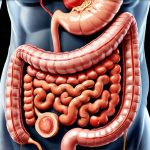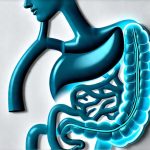As we move through life, many bodily functions undergo natural changes, and digestion is no exception. What once felt like a seamless process – enjoying food and efficiently processing it for energy – can sometimes become sluggish, leading to discomfort, bloating, and altered nutrient absorption. This isn’t necessarily a sign of illness, but rather a common consequence of the aging process itself, coupled with lifestyle factors that may accumulate over time. Understanding why digestion slows down is the first step towards proactively managing it and maintaining optimal health as we age.
The digestive system, remarkably resilient, also experiences wear and tear like any other organ system. Changes aren’t always dramatic or immediate; they often creep up gradually, making them easy to dismiss initially. However, these subtle shifts can significantly impact well-being, influencing everything from energy levels and immune function to mood and cognitive clarity. This article will explore the specific ways digestion changes with age, and more importantly, what practical steps we can take to support a healthy digestive system throughout our later years – focusing on strategies that empower individuals to take control of their digestive health rather than simply reacting to problems as they arise.
The Physiological Changes Impacting Digestion
The slowdown in digestion isn’t about a single cause; it’s a complex interplay of several physiological changes happening concurrently within the digestive system and beyond. One key factor is decreased muscle strength and coordination. Peristalsis, the wave-like muscular contractions that move food through the digestive tract, becomes less vigorous with age. This slower movement means food stays in the stomach and intestines for longer periods, potentially leading to constipation, bloating, and discomfort. Think of it like a conveyor belt slowing down—everything takes more time to process.
Beyond muscle function, there are changes in hormone production. For example, levels of gastrin (which stimulates stomach acid production) and secretin (which regulates pancreatic enzymes) can decline with age. Reduced stomach acid can impair the breakdown of proteins and absorption of vital nutrients like vitamin B12. Similarly, decreased enzyme secretion from the pancreas impacts overall digestion efficiency. These hormonal shifts aren’t always pronounced but contribute to a less efficient digestive process over time. Understanding hormonal shifts can help you manage symptoms.
Finally, structural changes within the digestive tract itself play a role. The intestinal walls can become thinner and less elastic, further slowing down peristalsis. The microbiome – that complex community of bacteria residing in our gut – also undergoes alterations with age. A diverse and balanced microbiome is crucial for optimal digestion; however, it tends to become less diverse as we get older, potentially impacting nutrient absorption and immune function. These changes are all interconnected, creating a cumulative effect on digestive efficiency. If you’re concerned about your gut health, consider exploring gut inflammation.
Dietary Adjustments for Easier Digestion
Making thoughtful dietary adjustments can significantly mitigate the effects of age-related digestive slowdown. It’s not about restrictive dieting but rather focusing on foods that support healthy digestion and minimizing those that exacerbate symptoms. – Increasing fiber intake is paramount, but it needs to be done gradually to avoid bloating. Good sources include fruits, vegetables, whole grains, and legumes. – Staying adequately hydrated is equally important; water helps soften stool and facilitates movement through the digestive tract.
Consider incorporating fermented foods into your diet. Yogurt (with live cultures), kefir, sauerkraut, and kimchi are all rich in probiotics – beneficial bacteria that can help restore a healthy gut microbiome. However, if you have underlying health conditions or concerns about tolerance, consult with a healthcare professional before making significant changes to your probiotic intake. – Smaller, more frequent meals can also be easier to digest than large meals, which put a greater strain on the digestive system. This approach allows the body to process food more efficiently and reduces the risk of bloating.
Beyond specific foods, pay attention to how your body reacts to different ingredients. Food sensitivities or intolerances may become more apparent with age as digestive capacity declines. Keeping a food diary can help identify trigger foods that cause discomfort. Finally, chewing food thoroughly is often overlooked but incredibly important—it begins the digestive process in the mouth and reduces the workload for the stomach and intestines. You might even consider a liquid diet to reset your system.
The Role of Physical Activity
Physical activity isn’t just beneficial for cardiovascular health or muscle strength; it also plays a crucial role in supporting digestion. Regular exercise stimulates peristalsis, helping food move through the digestive tract more efficiently. This is especially important as we age when natural peristaltic movements tend to slow down. Even moderate exercise like walking, swimming, or cycling can make a significant difference.
- Aim for at least 30 minutes of moderate-intensity exercise most days of the week. – Incorporate activities that specifically engage your core muscles, as these support digestive function. Yoga and Pilates are excellent options. – Avoid strenuous exercise immediately after eating, as this can disrupt digestion. Give your body time to process food before engaging in vigorous activity.
Beyond structured exercise, simply staying active throughout the day is beneficial. Taking short walks during breaks, gardening, or doing household chores all contribute to overall physical activity levels and support digestive health. Movement is medicine – a simple concept with profound implications for well-being, including digestive function. It’s important to consider how fast you eat as well.
Stress Management & Digestive Health Connection
The gut and brain are intimately connected through what’s known as the “gut-brain axis.” Chronic stress can significantly disrupt this connection, impacting digestion in several ways. When we’re stressed, our bodies release cortisol, a hormone that can interfere with digestive processes, leading to symptoms like bloating, constipation, or diarrhea. Stress can also alter gut motility and microbiome composition, further exacerbating digestive problems.
- Practice stress-reducing techniques such as meditation, deep breathing exercises, yoga, or tai chi. – Prioritize sleep; adequate rest is essential for both physical and mental well-being and helps regulate stress hormones. – Engage in activities you enjoy that help you relax and de-stress, such as spending time in nature, listening to music, or pursuing hobbies.
Mindfulness – paying attention to the present moment without judgment – can also be incredibly helpful. This involves being aware of your body’s signals and responding accordingly. If you notice digestive discomfort, take a moment to pause, breathe deeply, and assess what might be contributing to it. Remember that stress is a natural part of life; however, learning to manage it effectively is crucial for maintaining optimal health, including digestive well-being. Seeking professional support from a therapist or counselor can also provide valuable tools and strategies for managing stress. Don’t underestimate the impact acid reflux has on your overall health. If digestion slows down, it’s important to check digestion in the evening. Also remember that chronic gastritis can impact digestion too.


















